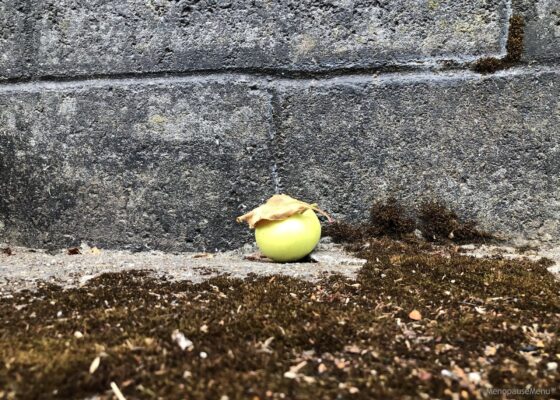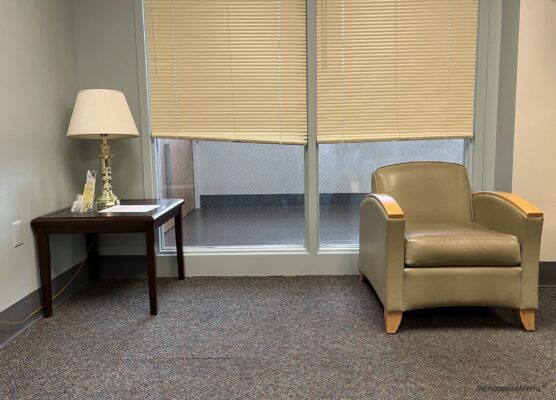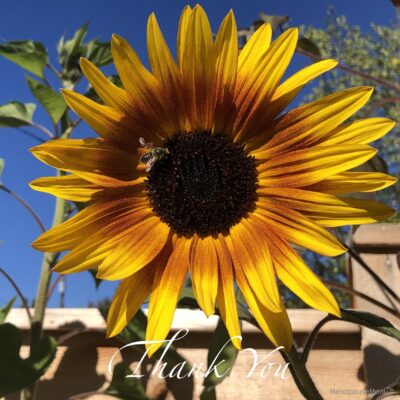With so much disconnect in our world right now, it can be a challenge for some to find ways to stay connected to meaningful things, people, places and events. I won’t belabor my own list of disconnectedness, but I imagine many of your lists are much longer than you are accustomed to.
A recent medical experience motivated me to write about this subject, and I am actually amazed at the directions it has taken me in just a short, few days.
It all started with a picture I posted on social media.
My husband had driven me to the hospital for an outpatient procedure, and after we checked in with the “have you had COVID or any exposure or symptoms” desk right off the parking garage entrance, we put the date screened stickers on our coats and entered the building.
We were directed to a small room where I sat in a chair, the only one in the room, my husband standing next to me. A nice man named Albert was seated opposite me behind a plexiglass screen at a computer. I was checked-in, my information verified, and a plastic wrist bracelet attached so I was identifiable.
We then left the tiny room and just down the hallway entered into a larger waiting room to sit and wait. There were two other people present, waiting, far apart from each other. Scanning the area, we chose to sit in two seats that were next to each other instead of “socially distanced” placed like all the other chairs.
The room was quiet but the hallway active as many scrubs-attired hospital employees walked by, carrying their lunch bags or coffees. I listened to snippets of conversations. The only other noise was the frequent opening and closing of the automated hallway door which led to the operating and procedure section of the hospital.
We had arrived early – Seattle traffic always the most important variable in any excursion of significance – so, we settled in to wait. The other two people waiting were taken back one by one, and soon we were the only two present in the room for the next 20 minutes.
Perhaps as one waits for a medical procedure or surgery there are many things running through the mind in a different way than usual. I was hyper-focused on my surroundings in a way that I would never have been had I been there as a physician (my usual position) or even as someone accompanying their patient relative.
I really don’t know why I took the picture.
Perhaps it looked like a still life painting and I was vaguely reminded of a picture I had taken while on a back alley walk, of an apple covered by a dead leaf in front of a concrete brick wall, just before a heavy rainstorm. It looked poignantly lonely and sad, yet protected.

The blinds were just slightly uneven at the bottom, giving the inside window views of legs and feet walking by in the outer hallway a jaunty appearance.
The placement of the chair far away from the corner table made it look dejected. The corner table had an unlit lamp and the base was made of cheap, flashy gold plastic, lending a “Motel 6” quality to the corner. A clear plastic brochure rack holding several items was turned toward the wall, as if banished to the corner in some sort of inanimate object time-out.
Carpet tiles were showing some of their seams. Just out of range of the picture to the left was a TV screen, mounted high up on the wall – great for viewing while standing but would require some neck straining if viewed while seated. It was turned off.
The indoor windows were in need of a good cleaning, the external daylight from beyond the hallway revealing their true dirty veneer from behind.
But it was the juxtaposition of the vinyl chair and wood-appearing corner table along with the color combinations that captured my attention the most. Both vacant chair and unused table seemed forlorn and distant. The color palate of yellow, green/beige, pebble gray and plastic gold were a tad nauseating. The navy ship gray wall and window trim adjacent to another flesh-colored wall didn’t help much either.
I posted the picture on social media, almost as an afterthought.
“I was here!”

Here is where the story starts to change.
My name was finally called, my husband said his goodbye and departed – no waiting in the waiting room allowed during COVID times.
The charge nurse was Susan, so I knew karma was working in my favor! She was getting close to retirement and we shared lots of stories while she got me undressed, my IV placed, and her long checklist attended to in great detail. I felt quite cared for.
Tina and a shy volunteer appeared and the two of them wheeled me over to the pre-surgery waiting area. John, another nurse, reviewed things again with me. Then I met Dr. J (the anesthesiologist) and Dr. A (the specialist) who carefully explained everything in just the right amount of detail. John rolled me into the surgical procedure suite.
There were at least four people attending to me closely with quick efficiency. The nice nurse on my left did the “safety pause” and everyone stopped what they were doing while I recited my full name and date of birth. Activity immediately resumed and after being made comfortable on the bed I entered my propofol slumber.
Coming-to, a sweet nurse Emme was at my side, busily getting me unhooked. She stayed at my side as I wobbled to the bathroom and made sure I didn’t fall over as I got dressed. A lovely volunteer pushed my wheelchair out to the garage entrance where my husband joined us and we rolled to the car.
Home!
I was tired and took a nap. Later that day I reflected on my medical journey and was so amazed that I could remember the names of all who helped me. I was also thankful for every single one of them making me feel special and cared for.
I then looked at my cell phone and viewed some of the comments related to the picture I had posted while in the waiting room. One friend had actually recently sat in the very same chair I was in and recognized the room immediately! Her mother had been waiting for a joint replacement.
Another friend commented on the distance between the corner table and vacant chair, acknowledging that it was not a welcoming look (I believe the word he used was “pathetic”).
Another grumbled about money being spent on fancy hospital lobbies in response to patient surveys, and also that pushing wheelchairs or equipment carts over carpet was not easy. Others mentioned the beautiful hospital lobbies they had seen recently or that they had helped to design.
The next day I received a message from a distant friend in New Zealand who had seen my picture and it “stopped her in her tracks.” It reminded her of an artist friend in Oregon who did a series of paintings of such spaces, so she sent my picture on to her.
Apparently the artist is a well-known landscape painter who also occasionally paints indoor pictures of “solitude paintings,” which are of lonely interiors where the occupants have left and there is a story in what remains behind.
So, now my picture is in the hands of this artist who feels inspired to make a painting based on it. Fascinating tidbit: her father had been a physician in San Francisco.
Here I am in Seattle with a friend in New Zealand who shared my picture with an artist in Oregon. Much like the artist, the pictures I take are typically of a flower or outdoor scene or garden (or food) and not of a sad indoor setting.
Six degrees of separation? I think more like three!
We are all connected. Let’s use this power to rise above the individual and collective challenges of our current times, be they personal, political, medical, environmental or other.

Postscript:
I feel very fortunate to have such connectivity. October 18th this year is World Menopause Day, and I felt it important to share my personal story to connect with all others who have their personal stories too. Before, during and after menopause we all need to stay connected and share our collective experiences.
(Update: you can read Connectivity, Part 2 here)
Postscript: Since this blog was first posted it has also appeared on Doctors on Social Media and MedPage Today’s KevinMD (retitled as “Use connectivity to rise above our individual and collective challenges”).